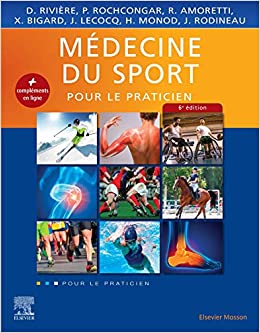Contents
Médecine du sport
What is sports medicine?
Sports medicine is the medical specialty which is interested in the physiology and biology of sport, but also in the specificities of the practice of sport (whether it is amateurism or competitive practice).
The discipline is interested in several aspects, and in particular:
- fitness for sport;
- doping ;
- the psychology and psychopathology of the athlete;
- specific pathologies of the musculoskeletal system;
- cardio-vascular, respiratory and neuromuscular adaptations;
- sports activities in special conditions, such as scuba diving or sport at altitude;
- but also prevention and education.
When to see a sports doctor?
The pathologies that athletes suffer from are the same as those of non-athletes, but they are likely to come back more often and can be more serious.. These include:
- the tendinitis ;
- the sprains ;
- fractures;
- or even muscle and joint problems.
Athletes wishing to improve their performance, top athletes are among the target audience of sports physicians.
What does the sports doctor do?
The sports doctor is the specialist of sportsmen. It is moreover the specificity of the population that he treats and advises that makes the sports doctor a specialist.
During a consultation:
- he questions his patient to better understand what brings him;
- he performs an in-depth clinical examination, for example to ensure that there are no contraindications to the practice of the planned physical activity;
- he tries to improve sports performance thanks to personalized care (for this, he monitors the cardiovascular function of athletes, measures maximum oxygen consumption, gives advice on diet or sleep, he makes sure that the amount of training remains reasonable, etc.);
- it treats ailments linked to the practice of sport.
Note that the sports doctor works in close collaboration with other specialists, such as cardiologists, nutritionists or physiotherapists.
The practice of sports medicine can be done in different structures, and in particular certain hospitals or clinics, national training centers, university sports centers, sports federations, or even professional sports clubs.
How to become a sports doctor?
Training to become a sports doctor in France
To become a sports doctor, you must obtain a diploma of complementary specialized studies (DESC) in sports medicine. This is a so-called type I DESC, which lasts 2 years. To do this, you must first hold a DES (diploma of specialized studies), namely the diploma that the student obtains at the end of the internship:
- after having completed 6 years of medical study;
- and after having passed the national classifying tests at the end of 6th year, which allow access to the boarding school.
Finally, to be able to practice and carry the title of doctor, the student must also defend a research thesis.
Note that with a DESC type I, the young doctor retains his title of specialist in the specialty of his DES.
The training to become a sports doctor hasu Quebec
After college studies, the student must follow a doctorate in medicine, lasting 1 or 4 years (with or without a preparatory year for medicine for students admitted with a college or university training deemed insufficient in basic biological sciences).
Then he must obtain a certificate of additional competence in sports and exercise medicine (3).
It should be noted that doctors who have completed a residency in physical medicine and rehabilitation are, among other things, considered to be an expert in the treatment and rehabilitation of both amateur and high-level athletes (4).
Prepare your visit
Before going to the appointment, it is important to take recent prescriptions, any x-rays, scans or MRIs performed.
To find a sports doctor:
- in Quebec, you can consult the website of the Canadian Academy of Sports and Exercise Medicine (5);
- in France, via the website of the National Council of the Order of Physicians (6).
It is possible to become “addicted” to sport, and it even has a name: bigorexia. It reflects a real dependence on physical activity.










